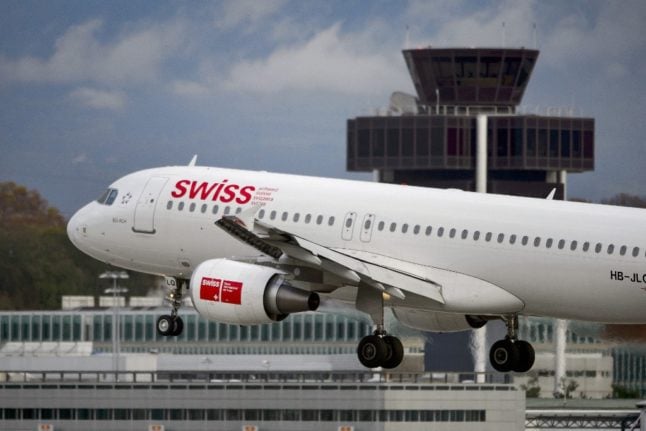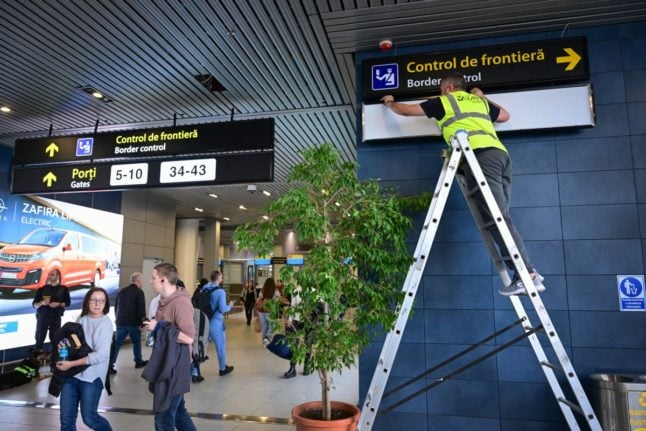Please note, new measures are now in effect. Click here for more information.
Switzerland’s expanded Covid measures, which will apply from December 6th, will include an expansion of the Covid certificate requirement, a shortening of the period antigen tests are valid for as well as a more comprehensive mask requirement.
The quarantine requirement for arrivals will also be scrapped from Saturday, December 4th, with tougher testing requirements put in place to control the spread of the Omicron variant.
READ MORE: Switzerland announces tighter Covid measures
From Saturday, all countries currently on Switzerland’s quarantine list, which included the UK, Australia, the Netherlands and Denmark, will be removed.
The announcement is a boost for Switzerland’s struggling ski industry, who were set to again incur big losses if the requirement would have been kept in place.
All countries removed
“All countries are removed from the quarantine list as of Saturday,” the government said. Everyone entering Switzerland must present a negative PCR test, except those crossing the border from neighbouring Austria, France, Germany, Italy and Liechtenstein.
Instead, people arriving will need to complete two PCR tests, one before arriving and one between four and seven days after arrival.
This will be for all entrants, regardless of vaccination status.
“In order to prevent the introduction of the new Omicron variant as far as possible, a more stringent test regime now applies to all entries into Switzerland. This compulsory test also applies to vaccinated and recovered people. “
People will need to pay their own test costs.
One important point to note is that those travelling from the following border areas of Switzerland’s neighbouring countries are not subject to the testing requirements.
Areas in Germany: State of Baden-Württemberg and State of Bavaria.
Areas in France: Regions Grand-Est, Bourgogne / Franche Comté and Auvergne / Rhône-Alpes.
Areas in Italy: Piedmont, Aosta Valley, Lombardy and Trentino / South Tyrol regions.
Areas in Austria: Land Tirol and Land Vorarlberg.
Territories in Liechtenstein: entire Principality
Around 340,000 workers a day cross the border into the landlocked country. People must be tested again between the fourth and seventh day after entering Switzerland.
Those already in quarantine are immediately free to go but must do the day four to seven test.
The Swiss government also said non-vaccinated foreign tourists from any region deemed at risk in Europe’s Schengen open-borders area would no longer be able to enter. Covid-19 vaccines will remain free and easily available in 2022, the government announced.
Infections increasing for weeks
Swiss Health Minister Alain Berset said the expansion of measures was necessary due to the deteriorating Covid situation in the country. Switzerland has recorded record new infections over the past week, while ICUs in several cantons are at full capacity.
“The infections have been increasing sharply for a few weeks. In addition to local outbreaks, mainly in schools and in old people’s and nursing homes, the virus is also spreading again among the broader population” the government said in a statement.
While the measures will be stricter than those currently in place, they are more relaxed than those initially forecast by the federal government on Tuesday, with the controversial Covid certificate requirement in private homes being rejected by the cantons.
READ MORE: How will Switzerland enforce the Covid certificate in private homes?
The measures will be in place until January 24th at the earliest.



 Please whitelist us to continue reading.
Please whitelist us to continue reading.
My friend is flying from Spain in Saturday and has no time to take PCR and get the result. Does the new rule apply from Saturday ? I can’t see anything that there will be some transition period? I assume lots of countries will be in same situation of needing a PCR but no time to take it on Saturday. Thanks for any advice